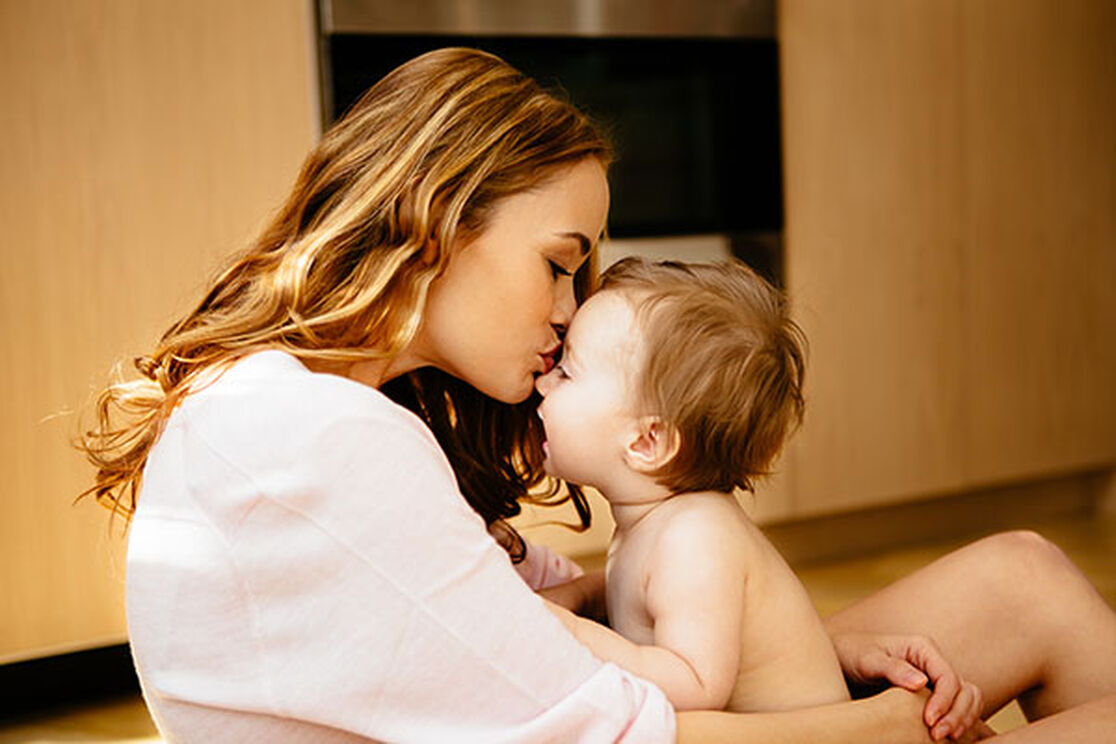You’ve probably heard that talking to your baby is important. From the minute your baby is born, their brains are ready and wired to hear, process, and learn language. It’s true that in the first 3 years of life, your baby’s brain triples in size; craving more stimulation to help that organ grow.
"The only thing we know of, that makes babies smarter, is talking to them.” ~ Lise Eliot, Ph.D, and author of What’s Going On in There.
So… no pressure, right? I remember that first day of maternity leave when my husband was back at work and my Mom just got on a flight to head home. It was just me and baby.
Before becoming a Mom, I was in a thriving job as a speech-language pathologist, AKA “speech therapist,” whose job is talking. I have made a career out of teaching kids to talk, teaching stroke survivors to talk, and even getting my husband to talk when it was time to over-communicate and hash something out.
I know all about talking. Trust me on that one. But in the beginning, I was sleep deprived, focused on this little human’s eating patterns, and lucky if I had a decent meal other than cheese and crackers. Changing a diaper required mental energy! How could I possibly narrate every waking moment of the day when I had so little brain power?!
Luckily, things got easier (sort of). And once you’ve figured it out (and you will if you haven’t already), there are a few things to keep in mind when it comes to talking:
- Your baby needs face time. Not the video version of grandparents and cousins on your iPhone, but your actual face. Your face gives so much information into what you’re saying and can make your words more meaningful. So start perfecting your “close talker” game.
- Chatty Cathy’s preferred. Talk as often as you can, about whatever you can. If you’re in the car, narrate some directions. If you’re chopping vegetables, narrate the process of holding a knife appropriately. If you’re catching up on emails or texts, read them out loud with emphatic expression.
- Don’t shy away from baby talk. Research shows that going goo-goo-gah-gah and talking in that high-pitched, sing-songy way actually boosts baby’s language, and might get your baby talking sooner.
- Keep your thesaurus handy. Well, not really. But studies show that the number of different words that parents use when they talk with their babies is what can help them succeed with reading later on. For instance, instead of saying “the bird is flying,” try “soaring” or “gliding in the sky.” Admittedly, this is taxing and exhausting to do sometimes. So look for other ways to expose your baby to different words, like books with rich vocabulary or songs.
- More than words. Of course talking is critical to language development and brain development. Your baby can’t learn language from staring at a television all day. It’s the personal communication, love, and attention that they need for learning. Understanding relationships and the beginning of social skills are the perfect foundations for the brain.
More words means bigger brains. Give your baby a boost and get talking.
~Erika, The Speechies
You can find Erika Cardamone swooning over cheese in the city by the bay. When she’s not searching for umami in her local eateries, she’s building forts and having dance parties with her toddler and husband in their small city apartment. If you want to know what she’s thinking, she’ll tell you at her blog over at TheSpeechies.com.
This post is solely for informational purposes. It is not intended nor implied to be a substitute for medical advice. If you have any concerns about your baby’s development, please consult their pediatrician.
We aim to provide you with the most honest and credible information possible. This article was reviewed for accuracy by The Honest Team and was written based on sources that are linked at the bottom of the article.
blog_review_statement



